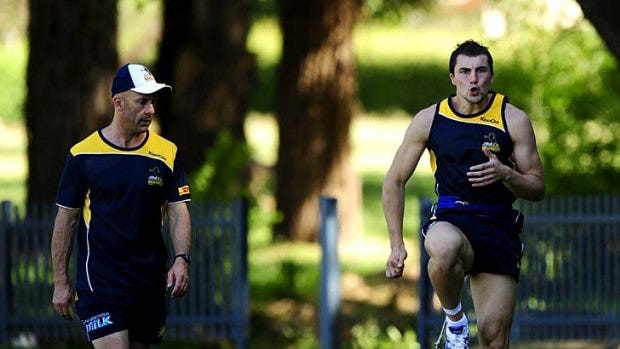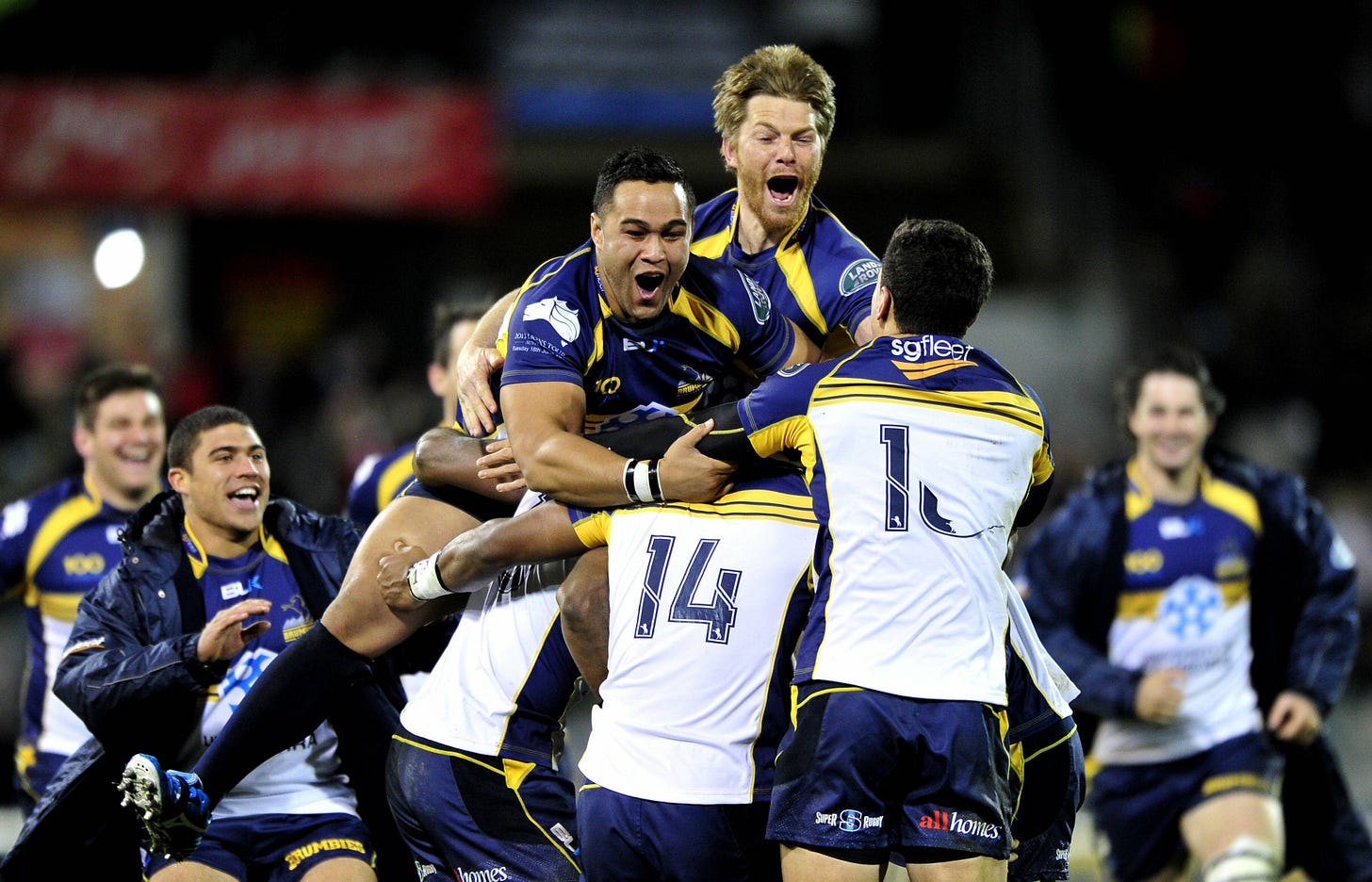Spewing at training
and what it taught me
The only time I ever spewed at training was during the Brumbies preseason of 2012.
We had a new trainer called Dean Benton, who’d been brought in to get us fit after the club’s worst season ever.
Most of the senior players left at the end of 2011, and suddenly I was one of the oldest on the team.
This meant Dean pushed me extra hard to set an example, which was fine because as a kid, my parents paid more attention to the effort column on my report card than my grades.
To them, effort was what drove results, and growing up with that mindset ingrained in me played a major role in my journey to becoming a professional footballer.
But by 2012, my performance had plateaued.
I started showing up to training tired and never gave much thought to what I ate or how much I slept. But when it was time to train, I would give it my all because that’s the only way to improve, right?
Then came that fitness session under Dean. We were doing shuttles (running up and back), and about three-quarters of the way through, I spewed. I hadn’t eaten or slept well, and when Dean told us we’d be doing the session again tomorrow, I marched up to him and said:
“Dean, I can’t keep this up. I’m trying as hard as I can.”
He snapped back:
“Benny, go away and focus on your eating and sleeping, and your training will take care of itself.”
I was confused. I thought he’d tell me to dig deeper and try harder because wasn’t effort all that mattered?
Dean went on:
“Benny, you’re not connecting the dots between what you’re eating and how you’re performing. Keep a food journal and get to bed earlier.”
So I took his advice and almost overnight, training got easier. I had the energy to train harder and before too long, my performance improved.
And so did the team’s.
We went from second-last in 2011, to minutes away from winning the Grand Final in New Zealand in 2013. We also became the first Australian team to beat the Lions in 40 years, and the first team to win a preliminary final on the High Veldt in South Africa.
And all with a young team.
Along with great coaching, I believe that turnaround happened because, as a team, we focused on the things that gave us the energy to train hard, rather than just training hard.
This is the most valuable lesson I took from sport, and has crept into all areas of my life.
Particularly parenting, as my wife and I realised we cut corners and are generally grumpier with our kids when we stop prioritising our health.
And I think the same applies to office life. So many people want to do great work, but are burned out and don’t have the energy to do it.
Some of that is outside their control. But much of it is within it.
I believe the burnout epidemic stems from prioritising work outcomes over taking care of ourselves. And as I’ve enter the workforce, I’ve noticed many people aren’t making sure they have physical and mental energy required to perform at their best.
I was lucky sport taught me this, and sharing this lesson is the main driver for why I write and do my talks: to encourage people to prioritise their wellbeing, and trust that everything else will take care of itself.
Effort isn’t everything.
Thank you Dean.


